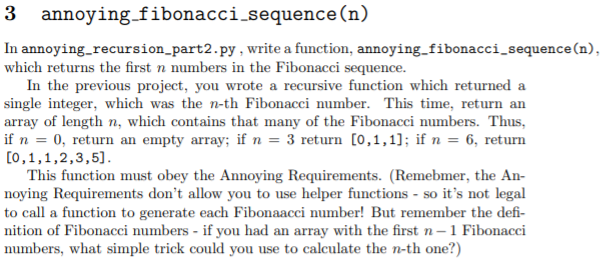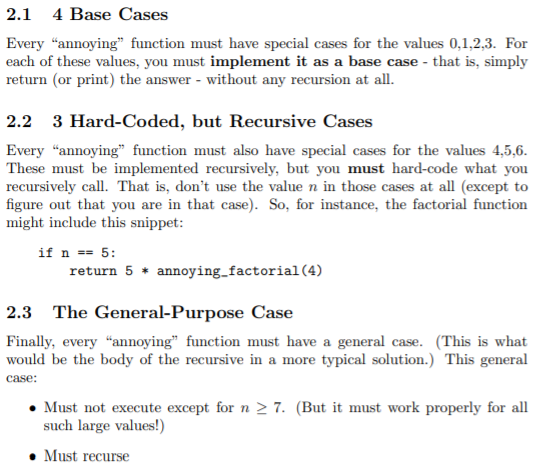Answered step by step
Verified Expert Solution
Question
1 Approved Answer
Please write this function in python. Do not use loops. Here are the Annoying Requirements: annoying_fibonacci_sequence(n) In annoying_recursion_part2.py, write a function, annoying_fibonacci_sequence(n), which returns the
Please write this function in python.
Do not use loops.

Here are the Annoying Requirements:

Step by Step Solution
There are 3 Steps involved in it
Step: 1

Get Instant Access to Expert-Tailored Solutions
See step-by-step solutions with expert insights and AI powered tools for academic success
Step: 2

Step: 3

Ace Your Homework with AI
Get the answers you need in no time with our AI-driven, step-by-step assistance
Get Started


